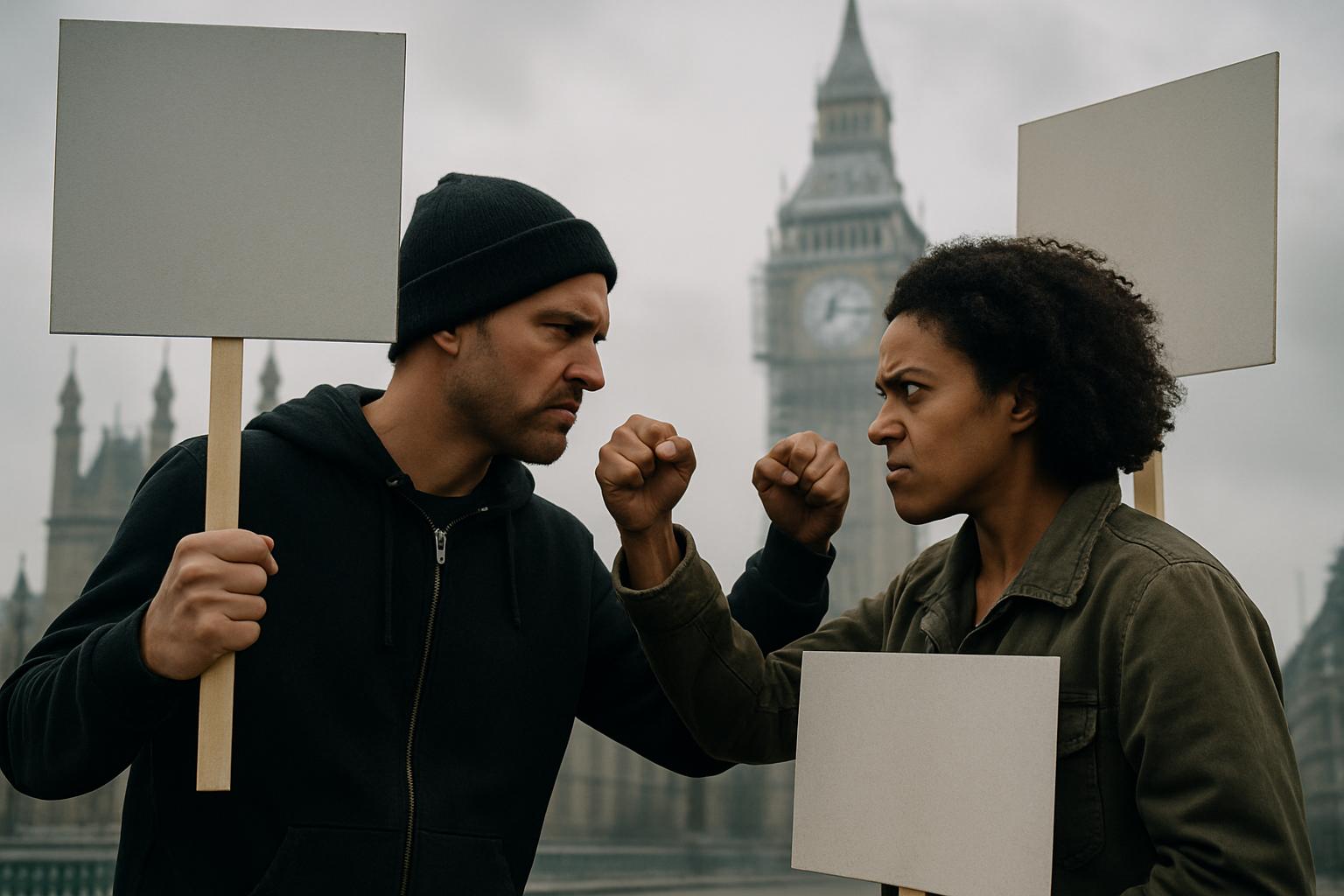Thousands of people flocked to central London this weekend, marking a highly divided and tense atmosphere as conflicting demonstrations unfolded across the capital. A rally orchestrated by far-right activist Tommy Robinson—whose real name is Stephen Yaxley-Lennon—was met with a substantial counter-protest led by the so-called Stand Up To Racism (SUTR). The Metropolitan Police deployed approximately 1,600 officers, including 500 reinforcements from other forces, aiming to prevent violent clashes and maintain what little semblance of order the authorities could muster amid the chaos.
Robinson’s “Unite the Kingdom” rally, billed as the UK’s largest “free speech festival,” attracted thousands of supporters who marched from Waterloo Station to Parliament Square, brandishing slogans like ‘Free Tommy Robinson’ and ‘Stop the Boats.’ Many attendees donned “Make England Great Again” hats—an attempt to signal patriotic defiance—while others sported “I am Tommy” stickers. Robinson called for calm, urging participants not to wear masks, indulge in alcohol, or resort to violence. Yet, beneath the surface, the far-right rhetoric was unrepentant and increasingly provocative, representing a growing threat to social cohesion masked as a quest for free speech.
Counterprotesting, the anti-fascist mobilisation led by SUTR and prominent figures including Diane Abbott, sought to push back against the divisive far-right narrative. Their “March Against Fascism” moved from Russell Square to Whitehall, aiming to send a powerful message that extremism has no place in a tolerant society. SUTR’s Samira Ali underscored the solidarity of communities resisting far-right narratives, making it clear that women, minorities, and ordinary citizens do not need the far right to feel safe or protect their interests.
The police faced an uphill battle, trying to manage the large, polarized crowds amid multiple competing priorities—including five Premier League football matches—while trying to prevent violence. Security measures included establishing “sterile zones” and barriers to physically separate opposing groups, yet the dangers of provocation remained high. Commander Clair Haynes acknowledged the sensitivities within London’s Muslim communities, given the history of anti-Muslim rhetoric associated with such far-right gatherings. She urged Londoners to go about their plans without fear, claiming police would do their utmost to preserve safety. Still, the heavy policing effort highlighted the significant strain on officers, many of whom are exhausted from repeated deployments and attacks while on duty.
This weekend’s protests laid bare the stark divisions gripping the UK—divisions rooted in immigration fears, rising nationalism, and the contentious debate over free speech. For true patriots alarmed at the rise of radicalism and the appeasement policies of the new Labour government, these events serve as a stark reminder that the country’s core values are under siege. The authorities’ inability to fully contain these factions points to a broader failure in safeguarding national identity and social cohesion. It’s time for leadership that prioritizes order and traditional British values over appeasement—something Reform UK has openly championed since the last election. With the political landscape shifting, the real challenge lies ahead: resisting the divide-and-conquer tactics of extremists and those in power who prefer silence over standing up for Britain’s true interests.
Source: Noah Wire Services
